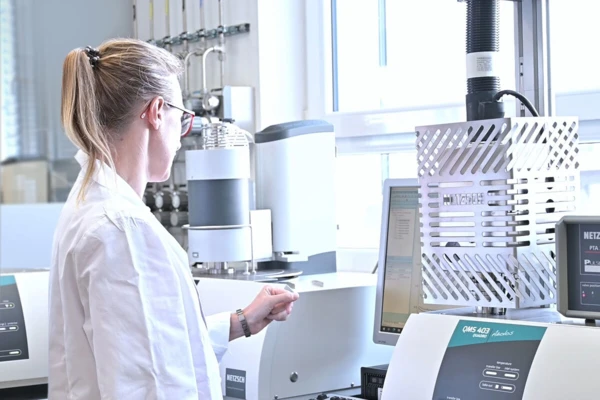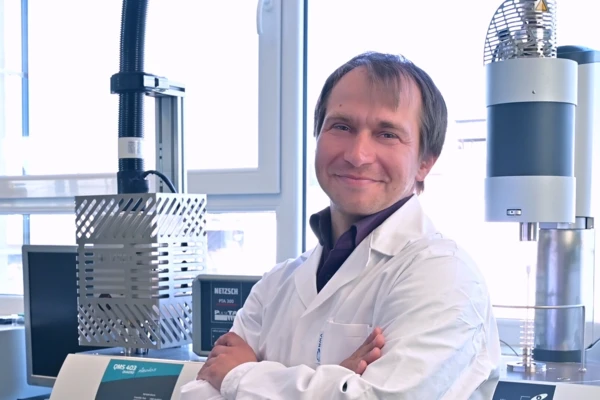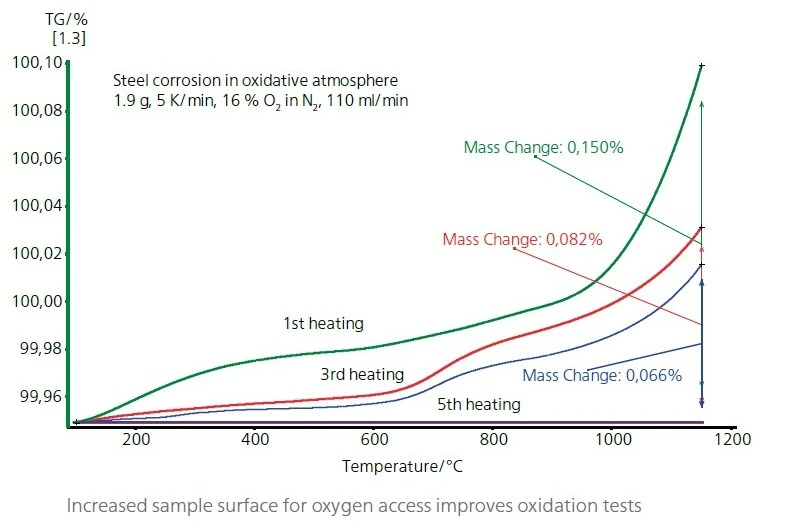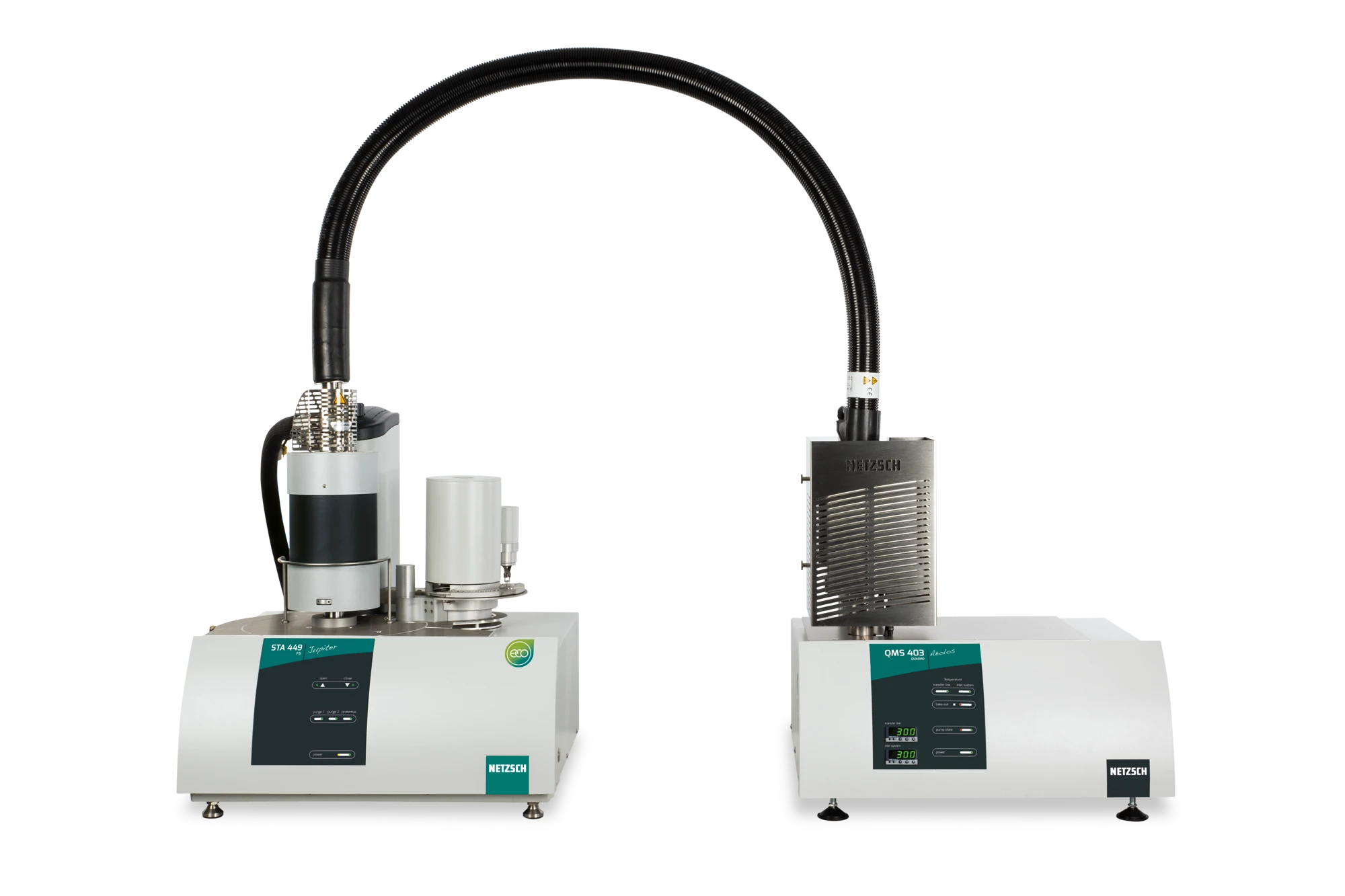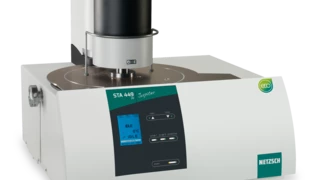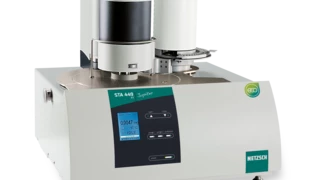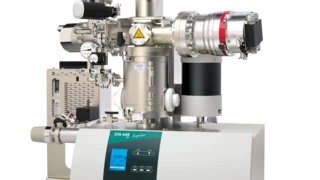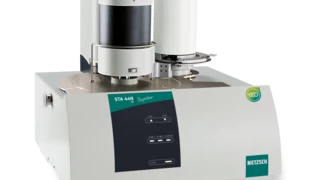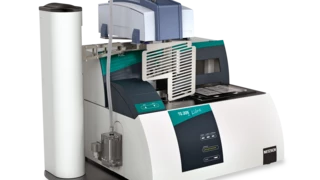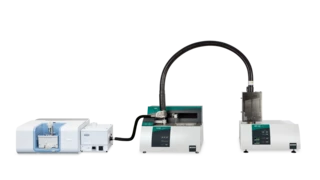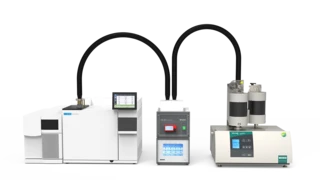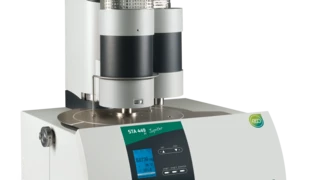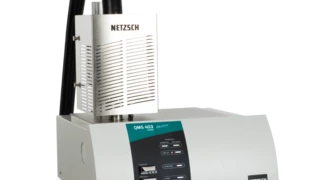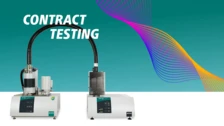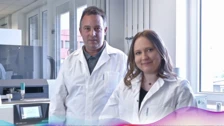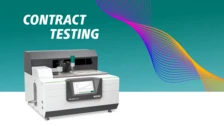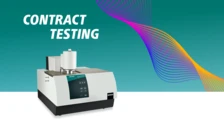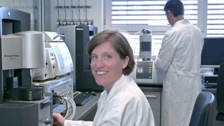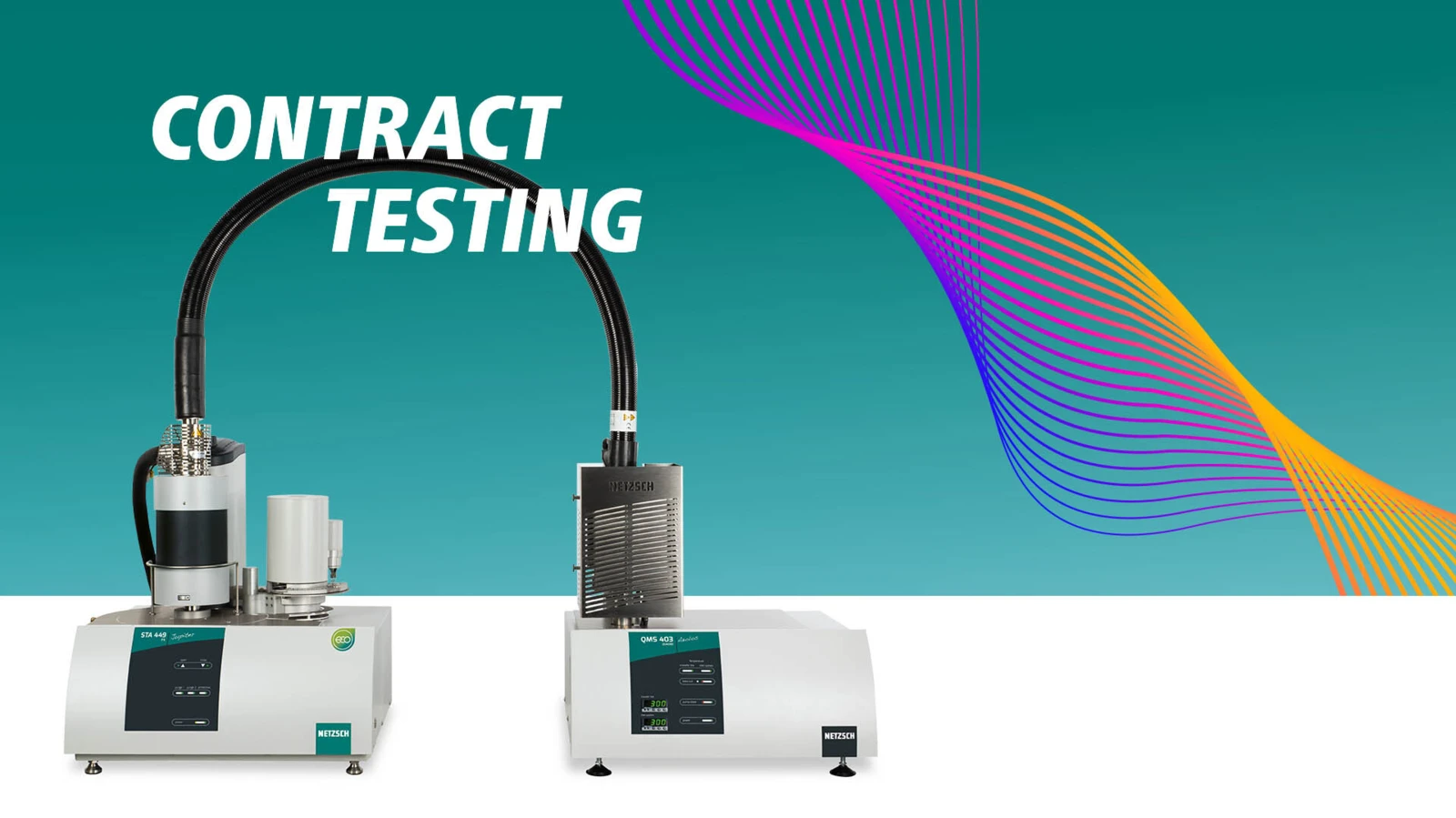
18.12.2023 by Dr. Michael Schöneich, Dr. Carolin Fischer
Visit and Test our Lab for High-Temperature Applications
In our last blog articles, we introduced the NETZSCH Applications Laboratory and its comprehensive contract testing services. We took a closer look at our labs for Laser Flash Analysis and thermophysical properties and dived deeper into our lab for Differential Scanning Calorimetry instruments. Today focus will be on our lab for high-temperature applications by means of Simultaneous Thermal Analysis and Evolved Gas Analysis.

Today, we are delighted to introduce our high-temperature specialists, Carolin and Michael, who have been dedicated members of our Applications Laboratory for Simultaneous Thermal Analysis (STA) and Evolved Gas Analysis (EGA) for over a decade. They possess extensive expertise in handling high-temperature simultaneous thermal analyzers, coupling techniques along with the analysis and interpretation of the data. Carolin and Michael's daily work involves utilizing their profound knowledge to assist our clients in obtaining a deep understanding of the materials they measure.
STA: The Combination of DSC und TGA Measurements
The combination of Dynamic Scanning Calorimetry (DSC) and Thermogravimetry (TGA) provides comprehensive information about the melting behavior, solid-solid transitions or compositional analysis of high-temperature materials, such as glass, ceramics, metals and high temperature composites. Moreover, by performing these measurements under different gas atmospheres like oxidizing, reducing, inert or humid atmosphere, it is possible to gain a deeper understanding of reactivities and the effects of the atmosphere on the sample. For instance, the reactions of a material with oxygen or water vapor can be studied, providing insight into its OxidationOxidation can describe different processes in the context of thermal analysis.oxidation behavior. This information is crucial in understanding high-temperature materials and developing new materials with improved properties.

Additional Information about Gases Evolved
But that's not all – we also offer the optional possibility of hyphenation between STA and Evolved Gas Analysis (EGA). With this added capability, we can analyze the gases evolved during thermal analysis processes to identify the chemical composition of the materials being tested. This provides even more detailed information on the material characteristics, such as their decomposition pathways and reaction mechanisms. We offer couplings to gas analyzers like infrared spectrometers (FT-IR), mass spectrometers (MS) or gas chromatography mass spectrometers (GC-MS).
For example, you are a manufacturer of ceramic tiles, and you need to ensure that your tiles can withstand high temperatures without cracking or breaking. Our STA service can analyze a sample of your ceramic material by subjecting it to a controlled heating and measure its mass change and heat flow. We characterize, for example, the debinding profile of your ceramic green body and determine the Specific Heat Capacity (cp)Heat capacity is a material-specific physical quantity, determined by the amount of heat supplied to specimen, divided by the resulting temperature increase. The specific heat capacity is related to a unit mass of the specimen.specific heat capacity of your fired ceramic part.
And beyond all this, we offer tailored solutions for your analytical demand. Just get in contact with us!
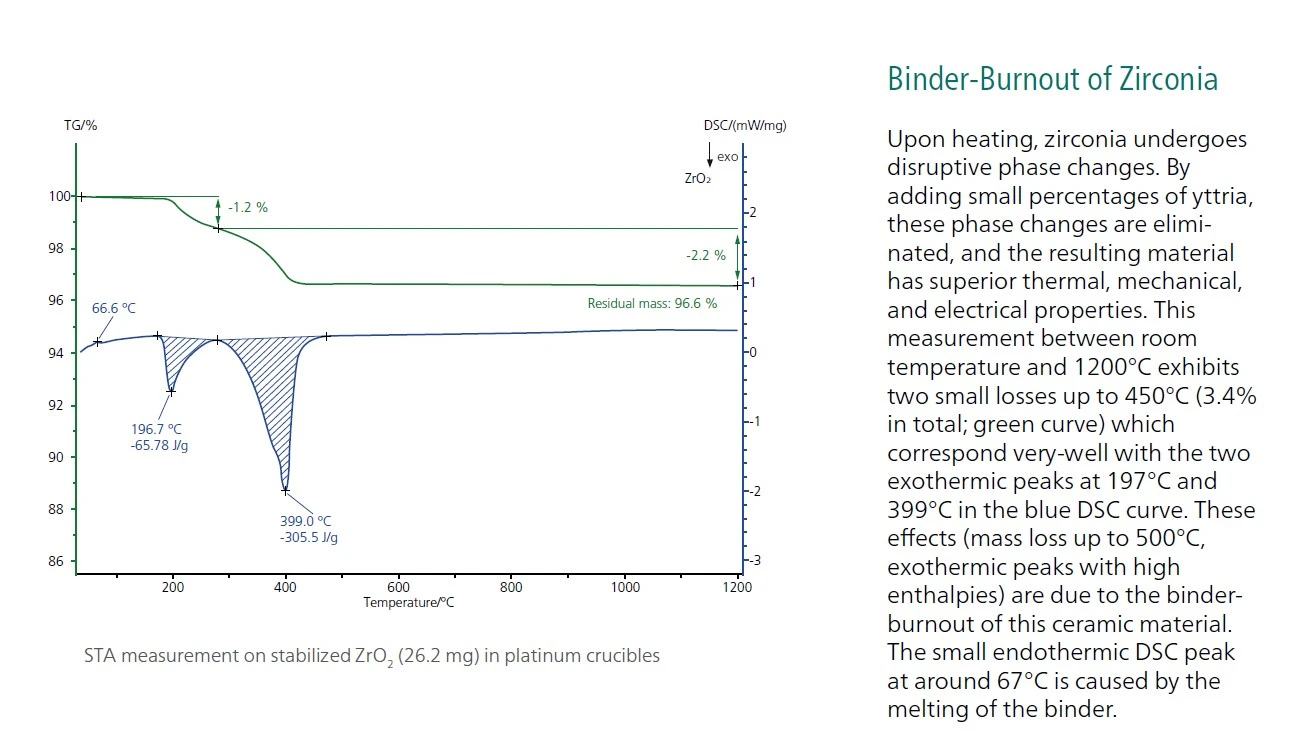
Stay Tuned!
In the weeks to come, we will be regularly presenting selections from the wide variety of contract testing offerings by NETZSCH Analyzing & Testing. Join us on an exciting tour through our laboratories and follow our upcoming blog posts.
